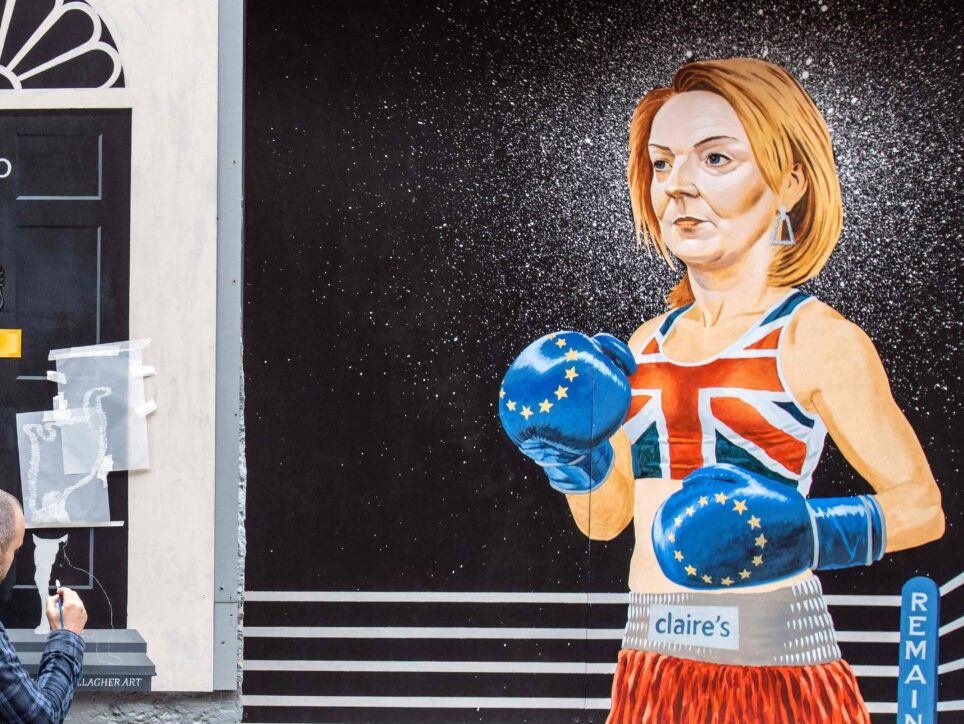A number of European MEPs have demanded that the EU slap sanctions on Britain should Liz Truss decide to rip up the Northern Ireland Protocol.
Any decision to rip up the Northern Ireland protocol by the United Kingdom should be retaliated against, European representatives have demanded, urging that Brussels should apply sanctions against Britain should it decide to single-handedly rip up the Northern Ireland protocol.
With many Unionists in the region viewing the protocol initially agreed with the EU by the Johnson administration as unfair, Foreign Secretary Liz Truss has spearheaded efforts to see the agreement changed, with UK authorities now looking to rework the agreement whether or not the EU actually agrees to these changes to the Brexit withdrawal agreement or not.
Now, as Truss edges ever closer to becoming Britain’s next Prime Minister, politicians in the EU have demanded legislation be put in place that would allow the bloc to quickly retaliate with sanctions should the agreement be changed without prior approval from Brussels.
“[T]he UK government has once again gone down the slope of unilateral action, [so] it is clear that the European Union needs mechanisms to protect our interests,” news agency Euroactiv reports German politician David MacAllister, who chairs the bloc’s foreign affairs committee, as saying.
Meanwhile, Seán Kelly, the Irish politician who is currently piloting the legislation that would allow sanctions to be dumped on Britain, said that the UK government’s alleged lack of engagement was “bitterly disappointing”.
“The unfortunate reality is that the British government has not engaged in serious negotiations on the Northern Ireland Protocol since February,” the pro-EU Fine Gael politician reportedly said.
“Trade with the UK is important for the EU and Irish economy in particular, so it goes without saying that I would certainly prefer if trade enforcement mechanisms were not needed,” he continued. “However, with the Northern Ireland Protocol Bill the UK Government has shown its willingness to break international law, so it necessary to ensure the EU can protect itself in the case of breaches.”
While EU bigwigs have been adamant to paint themselves as the victim in this conflict, those on the British side of things have painted a different picture of the disagreement, arguing that the changes they are seeking to make to the protocol are necessary for the preservation of peace in Northern Ireland.
Under the current rules, the six-county region has largely remained in the EU single market and — by extension — has been left partly cut off from the UK’s common market, an arrangement that has greatly angered many pro-UK Unionists in the region who greatly value their place in the British state.
So strongly do some Unionists in the region feel about the issue that the bloc’s largest party, the Democratic Unionist Party, have declared that they will not partake in the governing of the region until problems with the protocol are solved, a move that is viewed as endangering counter-sectarian efforts in the North.
As a consequence, authorities in Westminster have argued that arrangments to do with the protocol need to be changed urgently, and that while they would like to implement those changes alongside the EU if possible, they have no problem in pushing the amendments through single-handedly if needed.
It is now believed that, should Liz Truss become the Prime Minister of the United Kingdom next week, she would implement such changes to the protocol without EU approval within days, a move that — while likely to greatly alleviate the fears of many moderate Unionists in the region — will likely serve to aggravate tensions with pro-Irish nationalists, as well as government officials in both Dublin and Brussels.
